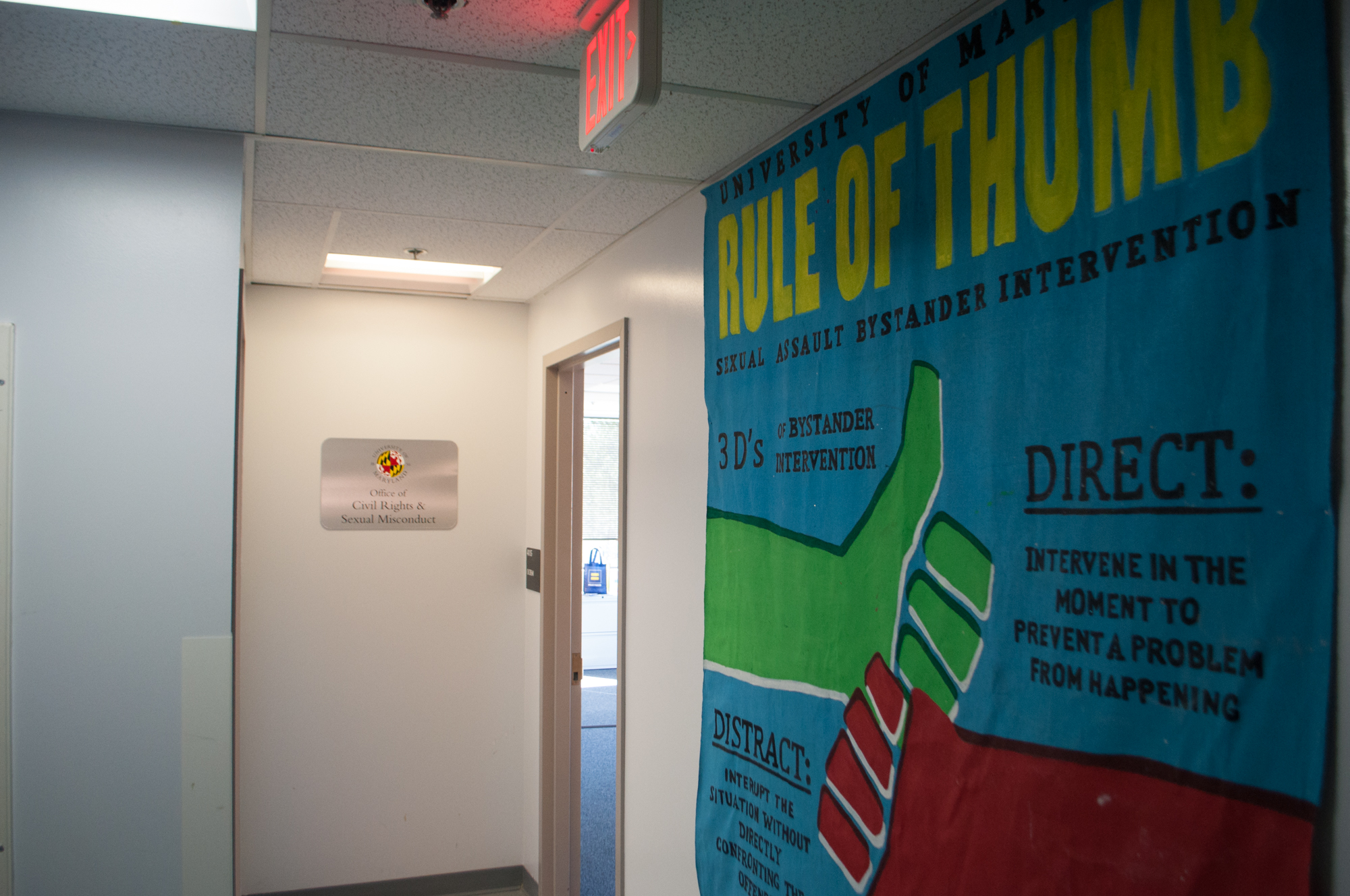Views expressed in opinion columns are the author’s own.
Since 2014, the University of Maryland’s Office of Civil Rights and Sexual Misconduct has been responsible for investigating Title IX violations — including sexual misconduct — when complaints are made. But it has perennially dealt with issues of underfunding and a dearth of employees, as well as a high turnover rate. The office has faced criticism from students in the past for failing to properly address complaints, and it has been a source of controversy on the campus for several years now.
OCRSM still had five vacancies as of Aug. 14, as reported by The Diamondback. Following the resignation of its former director Catherine Carroll, there was something of an exodus from the office that it still hasn’t recovered from. Now, the office is relying, in part, on at least one investigator from a private firm to fill vacancies that should be occupied by permanent employees of the university.
Though it’s better than the alternative of leaving vacancies unfilled by anyone, it’s a short-term solution where a more decisive one is needed. To solve this school’s chronic issues with investigations of sexual misconduct, the university needs to finally give the office the proper funding and attention it deserves as one of the most important on-campus resources for students. By no means should it need to outsource to a private company to meet the needs of its community.
The lack of adequate investigations into Title IX complaints has long been an issue for this university. In 2016, the Student Government Association recommended a mandatory $34 student fee in order to properly fund the office, a move that brought national media attention. Experts said at the time that it was practically unheard of for students to bear the costs of investigating sexual misconduct allegations, and the administration eventually approved more funding for the office to make the student fee unnecessary.
But problems at OCRSM didn’t subside.
In 2017 alone, the year after the student fee proposal, this university was saddled with three different federal Title IX investigations into how it responded to allegations of sexual misconduct. Sexual violence and issues with responding to complaints of misconduct are clearly not unique to this university: Since April 2011, there have been 502 such investigations into colleges across the country. But that’s all the more reason the university needs to be proactive in bolstering OCRSM with extensive funding and new hires, not patching up holes by contracting out to private firms.
Prior to her resignation, Carroll had been explicit about the issues facing OCRSM. She had been outspoken about how OCRSM was understaffed and underfunded as early as 2016, and even went so far as to say, “I don’t want to be promoting our office out there as this resource when we’re not adequately staffed to respond to the need.”
That was a startling admission for the head of the office to make. It’s even more concerning when considering how much more demand the office should likely be meeting. A 2014 Justice Department report stated that the vast majority of college sexual assaults go unreported — and what is being reported to this university’s OCRSM is already overwhelming the office.
It should be a major priority of the office to encourage people who have been sexually assaulted to report the incident and have it thoroughly investigated. Given this environment of widespread unreported sexual misconduct, the office should be preparing to engage with more students who have grievances, yet it is already unable to accommodate the number of students currently contacting the office. Last year, OCRSM saw a record number of students reporting sexual misconduct allegations but began the fewest number of investigations in its history.
Even if university administrators are motivated by nothing but saving face for this university and preventing more bad publicity in the future, they should allocate a wave of resources into OCRSM. It’s not a good look when the former athletic director shells out $15,000 in university funds for the legal representation of two athletes accused of sexual assault, but the university has to look to a private firm to staff the office in charge of investigating said sexual assaults.
Given the current state of OCRSM and the pervasiveness of sexual violence at colleges around the country, this issue isn’t going anywhere for the time being. Tellingly, before her resignation, Carroll said that “It’s almost like we can’t grow fast enough.” That will likely prove true until this university gives the office the attention it requires.
Zachary Jablow, opinion editor, is a junior economics and government and politics major. He can be reached at zachjablow@gmail.com.



